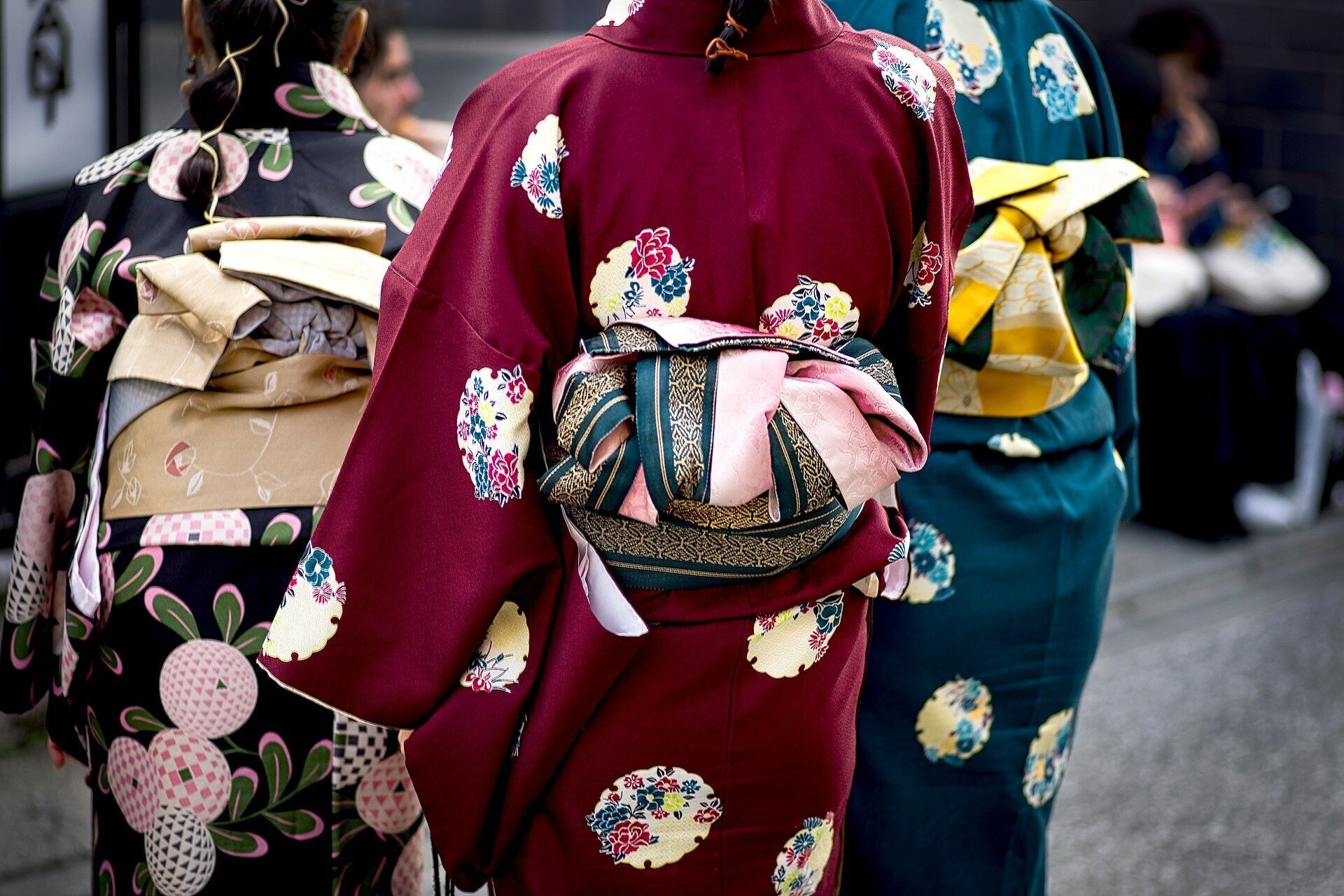August 18, 2021
What are the rights of permanent residence in Japan?
The difference between naturalization and permanent residency, and how to obtain it.

This article describes the process of obtaining permanent resident status in Japan.
Materials from the Japanese authorities will be interwoven into the introduction.
We will explain the advantages and disadvantages of obtaining permanent residence, the requirements for obtaining permanent residence, and how to apply.
Let’s get started
✔︎ Talk to a professional about moving to Japan for free!
Our company supports people who want to move to Hokkaido, Japan, and we provide free consultation services.
There are many steps involved in obtaining a Japanese VISA, and it can be quite difficult.
However, our professional staff will support you from the beginning to the end!
Please feel free to contact us even if you want to move to Japan but have not decided where yet.
Click here for a free consultation.
Contents
Reasons for Foreign Residents to Obtain Permanent Residency in Japan

There are 29 types of status of residence in Japan.
The top of the list is the permanent resident visa.
A permanent resident visa is also called permanent resident status, and many foreign residents wish to obtain it.
Once you obtain a permanent resident visa, you do not need to reapply for the status of residence.
This is a big difference between employment visas and general visas, which need to be renewed once every five years at the most.
Even a spouse visa for a Japanese national or a spouse visa for a permanent resident is not exempt from being renewed once every five years.
A permanent resident visa greatly reduces the restrictions on your activities in Japan.
As for other visas, as a rule, if you change your job or divorce and the purpose of your stay in Japan changes, you must obtain a new residence permit.
With a permanent residence visa, you can freely change jobs without changing your status of residence.
Another great advantage is that it increases your social credibility.
You will be able to obtain the same level of credit as a Japanese national, which is difficult with other visas that are considered temporary visits to Japan.
You may be able to obtain various types of loans, such as mortgages and business loans, or get a high-grade credit card.
You may even have a chance to move into public housing.
Obtaining a permanent residence status will give you the same status as the Japanese in terms of freedom of activity and social credibility, as you will not need to reapply for a residence status.
Difference between Permanent Residency and Naturalization

Even if you have permanent resident status, your position of being registered as a foreigner and remaining in Japan as a “foreigner” is no different from any other status of residence.
On the other hand, naturalization is to abandon the nationality of your birthplace and acquire Japanese nationality.
Let’s compare the two.
Permanent residents are not Japanese, so they do not have the right to participate in government.
They cannot cast a vote in national, prefectural, or local elections.
To obtain these rights, you must first become a naturalized citizen.
Once naturalized in Japan, overseas travel becomes more convenient.
This is because many countries do not require Japanese nationals to obtain a tourist visa for short-term stays.
This is proof that Japanese passports are trusted around the world.
The biggest difference may be the feeling.
Becoming legally Japanese will give you a sense of identity as a member of your country.
In principle, permanent residency is granted on an individual basis, while naturalization is granted on a family basis.
The requirements for naturalization include living in Japan for more than five years, being financially independent, and having a certain level of Japanese language ability, which may be easier for some people than the requirements for obtaining permanent residency described below.
Requirements for Permanent Residency and Key Points for Permanent Residency in Japan

As of 2021, the legal requirements for obtaining permanent residency in Japan are as follows.
<The following quote>
(1) Good behavior
They must comply with the law and lead socially acceptable life as residents in their daily lives.
(2) Possess assets or skills sufficient to earn an independent living.
The applicant shall not be a burden to the public in daily life and shall be expected to lead a stable life in the future given his/her assets or skills.
(3) The person’s permanent residence is recognized to be in the interest of Japan.
A: In principle, the applicant must have continuously resided in Japan for 10 years or more. However, during this period, the applicant must have been in Japan for at least five years with a status of employment (excluding the status of residence “Technical Intern Training” and “Specially Designated Technical Skill No. 1”) or residence.
However, out of this period, the applicant must have continuously resided in Japan for at least five years with a status of employment (excluding “technical intern training” and “specified skills”) or residence.
B: Have not been sentenced to a fine or imprisonment. They have properly fulfilled their public obligations (tax payment, payment of premiums for public pensions and public medical insurance, and notification obligations as stipulated in the Immigration Control and Refugee Recognition Act).
C: The applicant must be residing in Japan for the maximum period of stay specified in Appendix 2 of the Enforcement Regulations of the Immigration Control and Refugee Recognition Act concerning the status of residence he/she currently holds.
D: There is no risk of harm from a public health perspective.
※ However, in the case of the spouse or child of a Japanese national, permanent resident, or special permanent resident, the applicant is not required to comply with (1) and (2). In addition, in the case of a person who has been granted refugee status, (2) is not required to be met.
<End quote.>
Reference: Immigration and Refugee Management Agency website: Guidelines for permanent residence permits (revised May 31, 2019)
In other words, as a general rule, those who have lived in Japan as foreign residents for 10 years or more are eligible.
However, depending on the circumstances, there are special cases in which a shorter period of stay than 10 years is considered to satisfy the requirements.
| situation | conditions | The required length of stay |
| Spouse of a Japanese national or permanent resident | Have lived as a married couple for at least three years | 1 year |
| Children of the above | Must be a biological child. | 1 year |
| Permanent Residents (Specially permitted status of residence such as Japanese Americans) | — | 5 year |
| People who are recognized for their special contributions to Japan | Examples
・Winner of a prestigious award such as the Nobel Prize or Academy Award ・Engaged in corporate management in Japan for more than 3 years and invested more than 100 million yen. etc. |
5 year |
| People who are recognized for their special contributions to the community | The activities are based on the regional revitalization plan under the Regional Revitalization Law. | 3 year |
| Highly Talented Foreigners | More than 70 points | 3 year |
| Highly Talented Foreigners | More than 80 points | 1 year |
Highly Talented Foreigners may need to be explained.
This is one of the statuses of residence and is for people who are recognized as having a high level of expertise in academic research, industrial technology, or corporate management.
It may be easier to understand if you imagine a university professor, a software development manager, or a director of a large corporation.
For highly qualified foreigners, points are added when their educational background, work history, annual income, etc. meet certain conditions, and the period required to become a permanent resident varies depending on the number of points calculated, as described above.
For example, if you have a doctorate, you will receive 30 points, if your annual salary is over 10 million yen (about US$90,000), you will receive 40 points, and so on.
Based on the above, the average person (other than a housewife or a housewife) who applies for a permanent resident is “a person who has sufficient assets or income to live and has lived in Japan for more than 10 years”.
Procedures for Obtaining Permanent Resident Status

The following is a detailed description of the procedures for obtaining permanent residence.
Time and Fees for Application
The Immigration and Naturalization Service (IIR), an agency of the Japanese government, states on its website that it takes four months to apply for permanent residence in Japan.
However, this is just a standard time frame, and it can take up to a year, or as little as three months to be approved.
The fee is 8,000 yen (about US$72).
How to Apply
The application should be made at a branch office of the Immigration Bureau.
There are 23 such agencies located throughout Japan, including major cities such as Tokyo and Osaka.
In addition to applying on your own, you may also ask your employer to apply on your behalf, or ask an administrative scrivener, a legal professional, to act on your behalf.
Application Documents
The required documents are as follows.
・Application form (There is a format on the website of the destination organization or the Immigration Office)
・Photographs
・A letter of reasons (a letter stating in Japanese why you need a permanent residence permit)
・Passport
・Residence card
・Documents showing your income (e.g. certificate of inhabitant taxation)
・Documents showing assets (copy of bankbook, real estate register, etc.)
・Documents showing pension coverage (e.g., receipt of National Pension Insurance premiums)
・A letter of guarantee
A letter of guarantee is a document that indicates that there is a so-called co-signer.
It does not assume the debt of the applicant, but only the moral and moral responsibility.
The following documents are also required depending on your status of residence and family situation.
・A copy of the family register
・Certificate of residence of family members
・Certificate of employment
・A copy of your tax return.
Please check with the immigration office or your agent to find out which documents are required.
Patterns of Denial
Not all permanent residence permits are granted to all applicants.
According to data from the Ministry of Justice, in 2020, out of 57,570 decisions, 29,747 were approved.
In total, 44% of the cases were rejected.
The Immigration and Refugee Recognition Agency’s website has stories of permanent residency permits granted in Japan.
・I was involved in illegal residence.
・Volunteer work as an interpreter for one year was not considered to be a contribution to society.
・Research activities were deemed to be within the scope of a student’s work, and the contribution was not recognized.
Whether or not your special contribution to Japan can be recognized and your period of stay shortened will be judged strictly.
Also, be careful if you are involved in fraud.
Summary
Obtaining permanent residency in Japan has advantages such as not needing to renew your status of residence and making it easier to get a loan.
Unlike naturalization, it does not give you the right to vote in Japan or Japanese local governments.
As a general rule, those who have been living in Japan for more than 10 years are eligible, but there are special cases where the period can be shortened to 5 years, 3 years, or 1 year depending on the status of employment and performance.
It can take more than six months from the time of application to the time of approval, and it is a complicated procedure with many documents to prepare.
It is recommended that those who wish to obtain permanent residency in Japan smoothly apply as early as possible or find someone to consult with.

